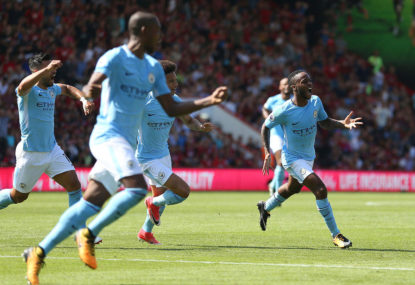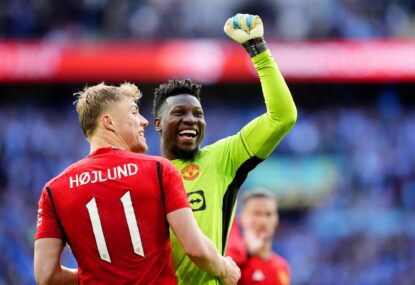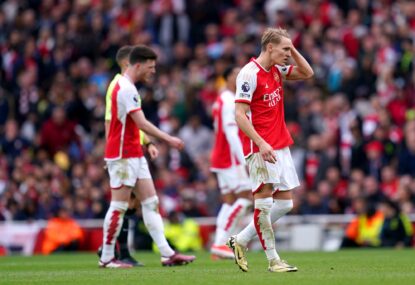Globalisation has made the English Premier League the best in the world, bringing the game to a worldwide audience.
International superstars are gracing the field week in week out, and although Manchester City have started this season with aplomb, the league is generally more competitive than its European rivals. But as the money comes in, are English fans been left behind?
Local fans are paying extraordinary gate fees to watch their beloved clubs, while the clubs themselves are making record profits. Furthermore, while the Premier League has blossomed, the English National Team has dwindled behind their European and global rivals.
Globalisation of football has made EPL clubs the richest in the world. This is largely due to the changes in the distribution of television revenue, mixed with the increased global interest in the league.
Before the EPL was formed, top-flight clubs were members of the Football League, and the league mostly kept the television revenue.
As the clubs wanted a share of revenue for themselves, they broke away from the Football League, and they were then able to retain 75 per cent of the broadcasting revenue. The result of its formation has seen the EPL beam onto screens over the world, and it is now the most followed football league globally.
The global interest in the league pushed up the most recent broadcasting deal up to £8.7 billion over 2016-2019, with clubs receiving £100 million minimum each season.
This is an extraordinary change since the formation of the EPL in 1992, when English clubs were inferior to the giants of Italy and Spain. Clubs are clearly financially benefitting from the globalisation of the Premier League, but a large portion of the increased revenue has gone into wages of both playing and non-playing staff.
During the 2015-16 Season, Chelsea had the largest wage bill in the league, with staff taking home £215.6 million a year. This demonstrates those directly involved in English football are profiting, but what about the fans?
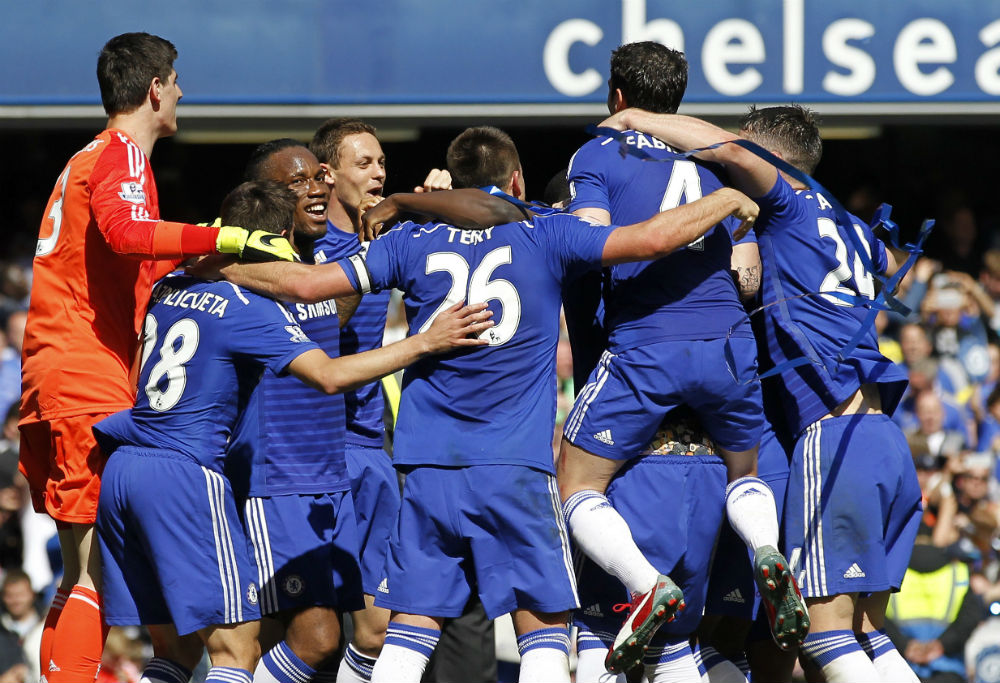
(IAN KINGTON/AFP/Getty Images)
Football in England has become extremely expensive, and it is pricing out many traditional fans while financial stakeholders are profiting.
Prior to the formation of the EPL, football clubs in England had a modest international following, and were typically run with local fans being the number one stakeholder. Yet the increased revenue brought in by the globalisation of the game has increased each clubs fan-base significantly, with clubs reaching out to a global audience.
Manchester United has over 70 million followers on their social media account, yet the population of Manchester is less than one million. Clubs are aware that the more international fans they have, the more they will get in sponsorship revenue.
As a result, the traditional fans are been neglected. The price of being a traditional fan has increased to extraordinary levels, with gate fees growing at incredible rates. The cheapest season ticket price at Arsenal during the 2014-15 season was £1014.
Yet while fans are forfeiting so much cash, the clubs largest shareholder, Stanley Kroenke, charged £3 million for dubious “strategic and advisory services” and their director Ivan Gazidis was paid £2.29 million for the season.
Traditional Arsenal fans are now seen as paying customers, and if they do not want to pay for their ticket to the game, there will be football tourists that do.
Arsenal may argue that fans are treated to a much higher quality of football than ever before, and although this may be true, they cannot argue that the traditional fan-base is the number one stakeholder anymore.
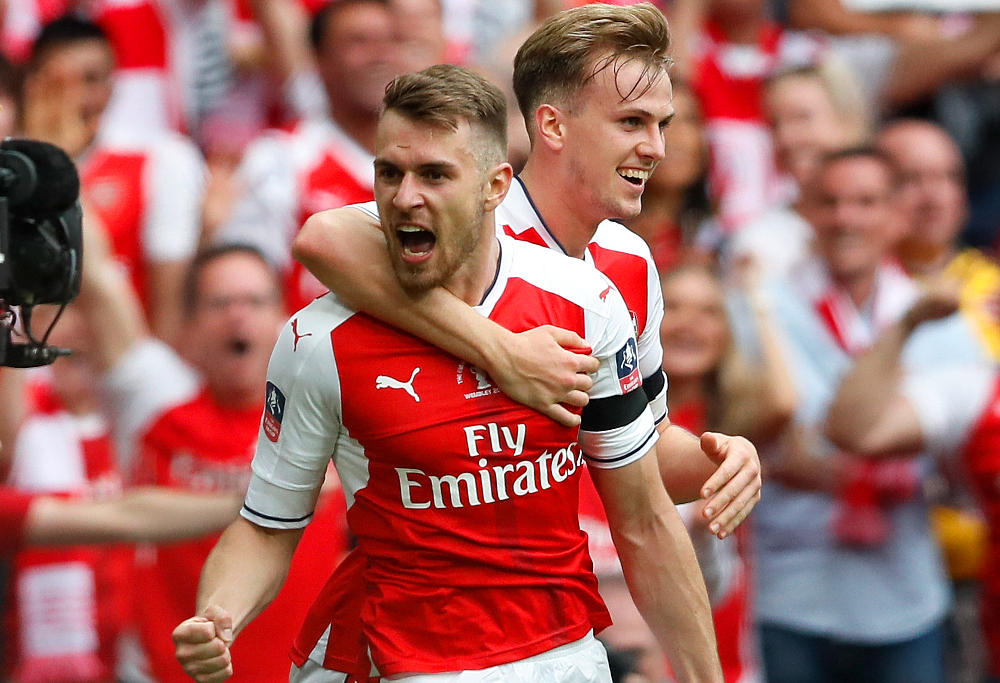
(AP Photo/Kirsty Wigglesworth)
The globalisation of football has also resulted in English fans been let down by poor performances from the national team. The free movement of players means English footballers are competing with international stars for a starting position at each club.
With the exception of the Spanish and Italian giants, English clubs have far more money than their global rivals, and can consequently pay their players more.
This means Premier League clubs are filled with international talent. There has been no top-flight club that has fielded an entirely English team since Aston Villa did in 1999.
As a result, there are much fewer young English players are getting top-flight experience, as clubs are now dependent on their international stars.
The English national team has suffered as a result, and English fans are paying the price for their international league. The recent UEFA Euros was yet another heart-breaking tournament for English fans, with the Three Lions been knocked out by Euro debutants Iceland.
Although much of the blame was placed on the much maligned coach Roy Hodgson, England were never a realistic chance of winning the tournament.
They simply do not have the playing depth that rival countries such as France, Germany, or even eventual winners Portugal have. This is simply because these countries have a top-flight league where young players are given the opportunity to develop.
During the 2014-15 season, only 35 per cent of starting players in the Premier League were English, compared to 56 per cent of home-grown players in France. The English national team is suffering from the globalisation of football, and the fans are ultimately been let down.
The English Premier League is a joy to watch, and it is far more unpredictable than the other big European leagues.
You only need to look at Leicester City’s surprising victory in 2015-16 to see why fans around the world are happy to tune in at all sorts of hours to watch English clubs play. But although globalisation has filled English clubs with international superstars, the traditional fan-base is been neglected.
Clubs are registering record turnover, but are still charging fans extraordinary fees to attend games. English fans are also facing a long wait for a major international trophy from the Three Lions, and this is credited to the lack of English players in the Premier League.
This does not matter for English clubs – why would they nurture a young talent when they can buy an established superstar? The English Premier League is undoubtedly the best in the world – just as long as you are not English.






























































































